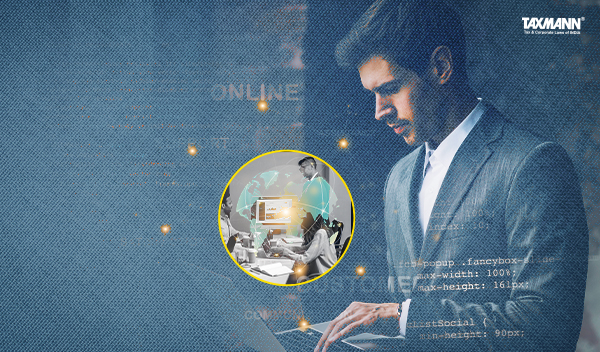Educating a Person With Respect to Functionality of Software Doesn’t Amount to Rendering of Technical Service | ITAT
- Blog|News|International Tax|
- 3 Min Read
- By Taxmann
- |
- Last Updated on 16 May, 2024

Case Details: Openwave Mobility, Inc. vs. DCIT - [2024] 162 taxmann.com 434 (Delhi-Trib.)
Judiciary and Counsel Details
-
- G.S. Pannu, Vice President & Ms Astha Chandra, Judicial Member
- Gaurav Singhal, Adv. for the Appellant.
- Vizay B. Vasanta, CIT-DR for the Respondent.
Facts of the Case
The assessee, a US-based company, was engaged in providing services relating to Transmission Control Protocol and Video Optimization Solutions to Telecom Operators across the Globe. During the relevant assessment year, it entered into a Software Licensing Agreement and Service Level Agreement by way of an Annexure to the Software License Agreement for providing annual maintenance and support services pursuant to which it received software licensing income and an Annual Maintenance Contract (AMC) service income.
Subsequently, the assessee furnished the return of income, declaring the receipts as non-taxable and claimed refund of the tax deducted. Meanwhile, in the assessment proceedings, the Assessing Officer (AO) proposed an addition to the assessee’s income as FTS income for the receipts pertaining to the supply of software (including AMC services).
The aggrieved assessee filed objections before the Dispute Resolution Panel (DRP), which was rejected. The matter then reached before the Delhi Tribunal.
ITAT Held
The Tribunal held that the Service Level Agreement, which envisaged rendition of support and maintenance services (AMC), forms part of the Software License Agreement by way of Annexure to the said agreement. Services provided by the assessee are thus ancillary and subsidiary to the licensing of software and would, therefore, be characterized in the same manner as that of the predominant or original transaction, which is the software supply in the present case.
Further, the training services are for acquainting with the operation or use of software. These activities do not qualify as ‘make available’ within the meaning of the expression contained in Article 12(4)(b) of the India-USA DTAA.
The meaning of the expression ‘make available’ has been derived from umpteen numbers of judicial precedents as well as Protocol to the India-USA DTAA. It was found that none of the conditions to qualify for the test of ‘make available’ were satisfied, as:
a) the service recipient is not able to apply any expertise or technology contained therein or use knowledge on its own without recourse to the service provider;
b) the service recipient is not at liberty to use the technical knowledge, skill, know-how and process of the assessee in its own right and
c) the service recipient cannot perform the services on its own and must necessarily seek the services of the assessee time and again.
Imparting training or educating a person on the functionality and attributes of software or application would not amount to rendering technical service under the DTAA. Thus, entire receipt from the supply of software licence and maintenance and support services rendered by the assessee were held to be non-taxable in India.
List of Cases Reviewed
-
- Engineering Analysis Centre of Excellence (P.) Ltd. v. CIT (2022) 3 SCC 321 (para 9) followed.
List of Cases Referred to
-
- Excellence Pvt. Ltd. v. CIT 3 SCC 321 (para 3.4)
- Aspect Software Inc. v. ADIT [2015] 61 taxmann.com 36/172 TTJ 1/155 ITD 409 (Delhi – Trib.) (para 5.1)
- Infrasoft Ltd. v. Asstt. DIT [2010] 1 ITR(T) 390/[2009] 28 SOT 179/125 TTJ 53 (Delhi) (para 5.1)
- DIT v. Infrasoft Ltd. [2013] 39 taxmann.com 88/[2014] 264 CTR 329/220 Taxman 273 (Delhi) (para 5.1)
- CIT v. Bharti Cellular Ltd. [2010] 234 CTR 146/[2011] 330 ITR 239/[2010] 193 Taxman 97 (SC) (para 5.2)
- CIT v. De Beers India Minerals (P.) Ltd. [2012] 21 taxmann.com 214/346 ITR 467/208 Taxman 406 (Karnataka) (para 5.2)
- SFDC Ireland v. CIT TS-175-HC-2024 (para 10.5).
Disclaimer: The content/information published on the website is only for general information of the user and shall not be construed as legal advice. While the Taxmann has exercised reasonable efforts to ensure the veracity of information/content published, Taxmann shall be under no liability in any manner whatsoever for incorrect information, if any.

Taxmann Publications has a dedicated in-house Research & Editorial Team. This team consists of a team of Chartered Accountants, Company Secretaries, and Lawyers. This team works under the guidance and supervision of editor-in-chief Mr Rakesh Bhargava.
The Research and Editorial Team is responsible for developing reliable and accurate content for the readers. The team follows the six-sigma approach to achieve the benchmark of zero error in its publications and research platforms. The team ensures that the following publication guidelines are thoroughly followed while developing the content:
- The statutory material is obtained only from the authorized and reliable sources
- All the latest developments in the judicial and legislative fields are covered
- Prepare the analytical write-ups on current, controversial, and important issues to help the readers to understand the concept and its implications
- Every content published by Taxmann is complete, accurate and lucid
- All evidence-based statements are supported with proper reference to Section, Circular No., Notification No. or citations
- The golden rules of grammar, style and consistency are thoroughly followed
- Font and size that’s easy to read and remain consistent across all imprint and digital publications are applied



 CA | CS | CMA
CA | CS | CMA
